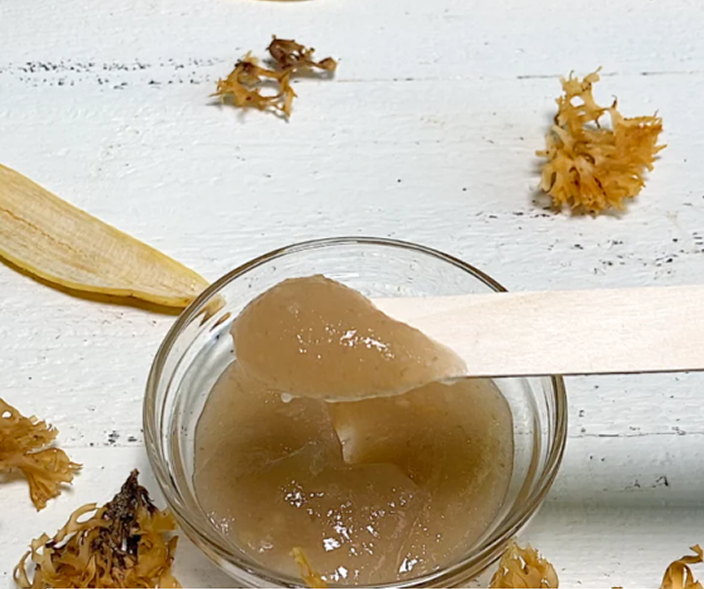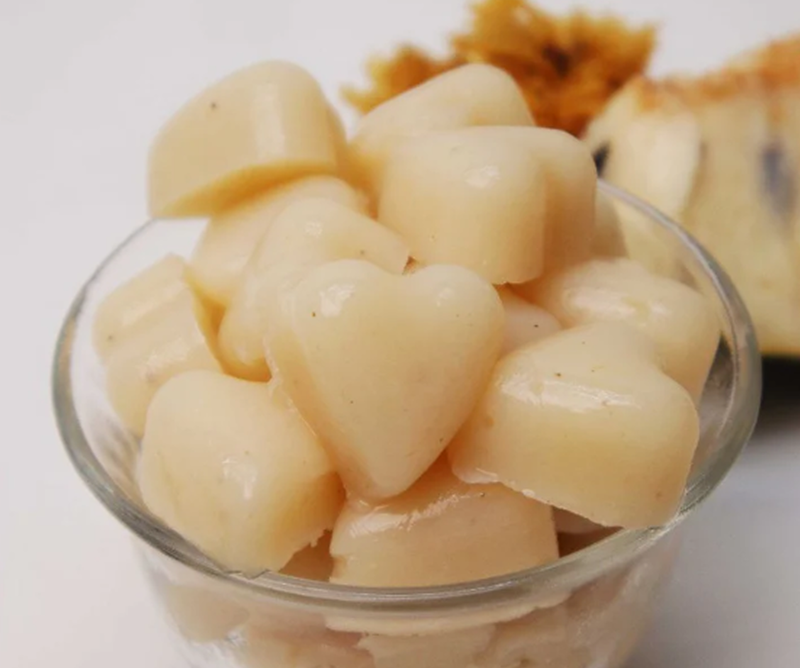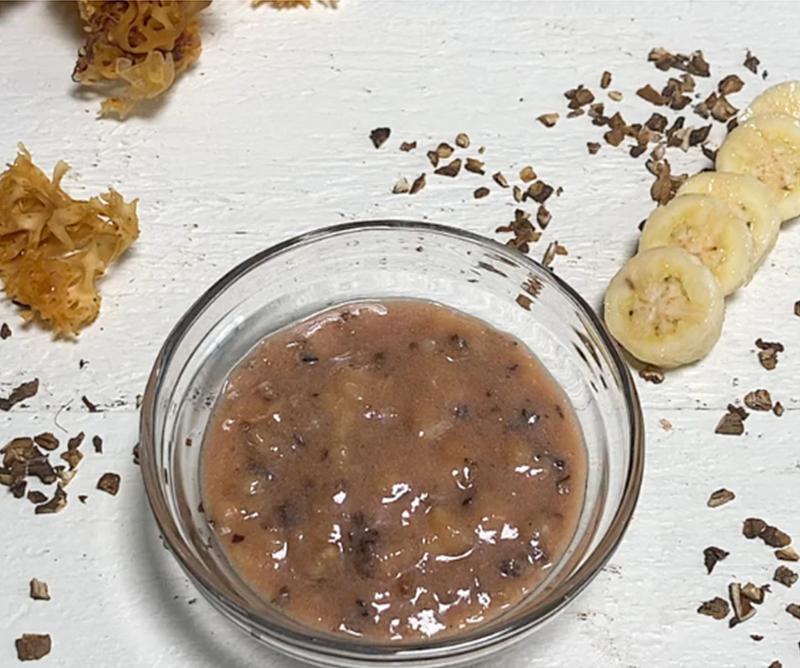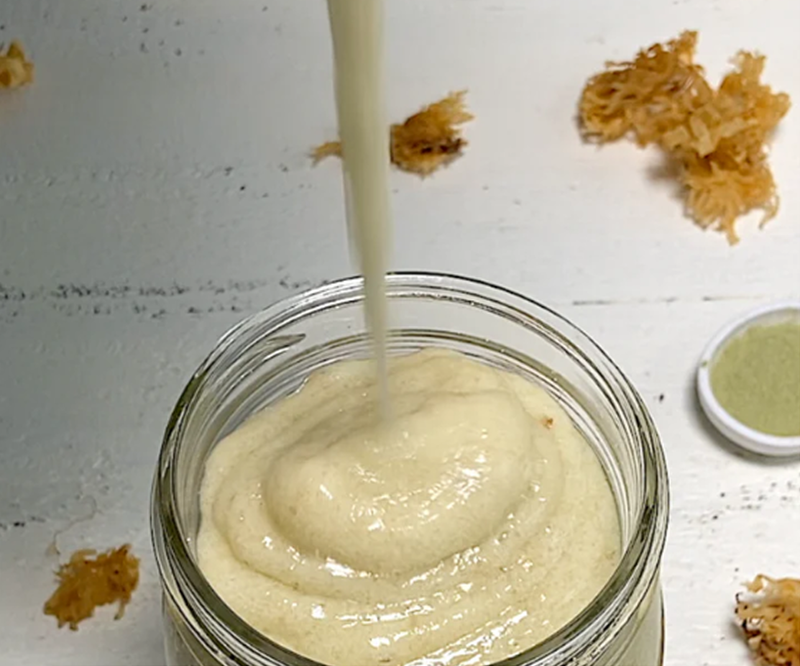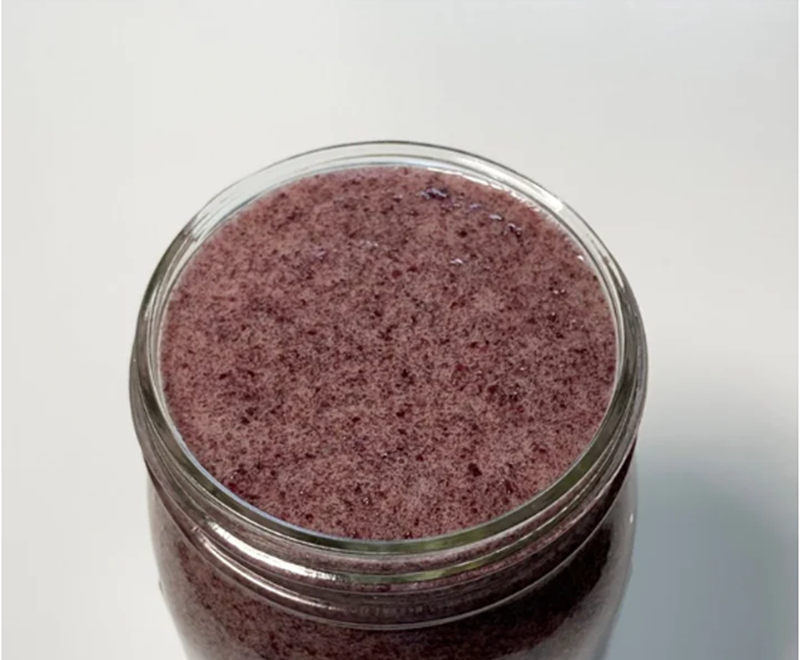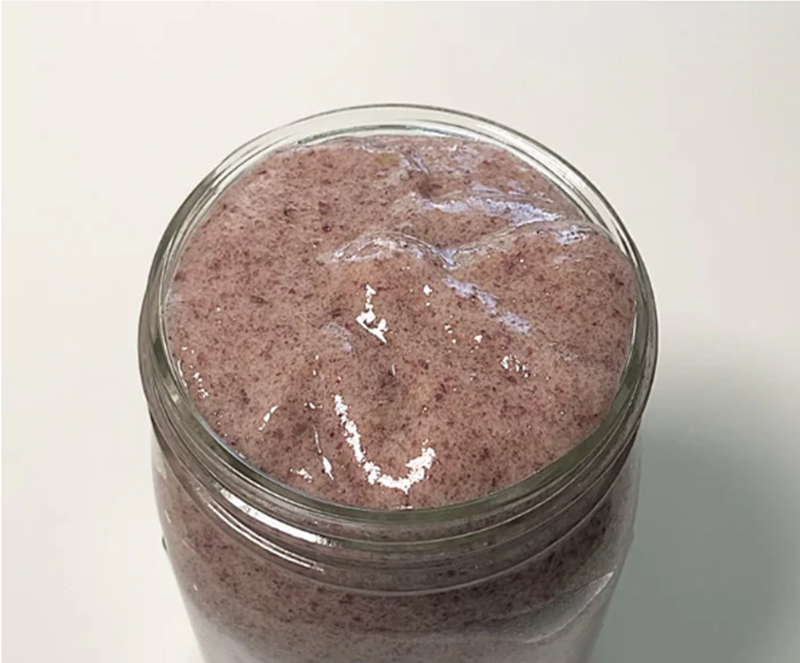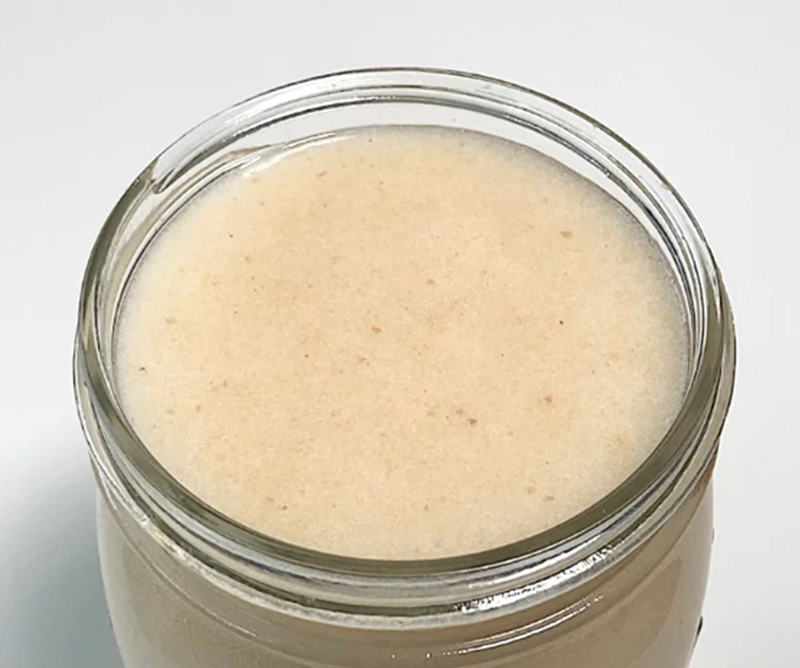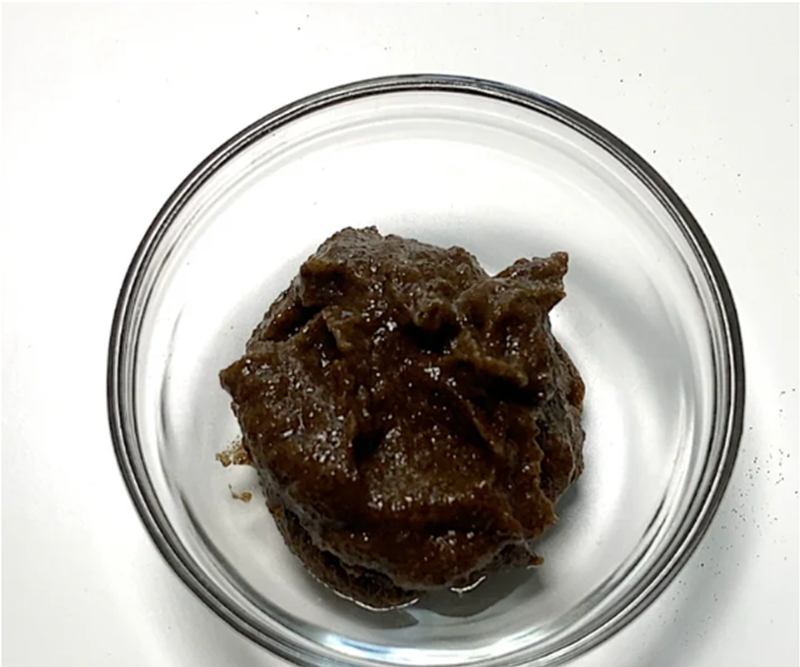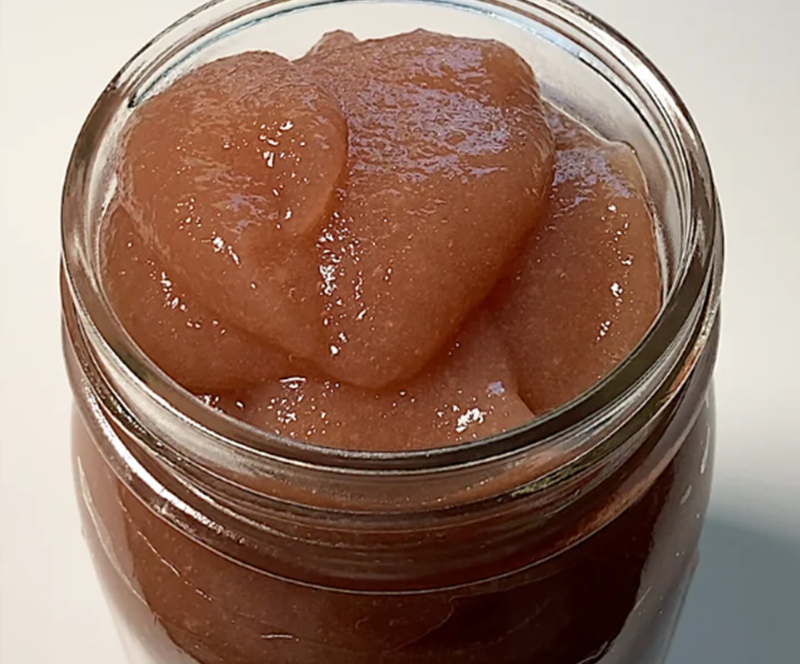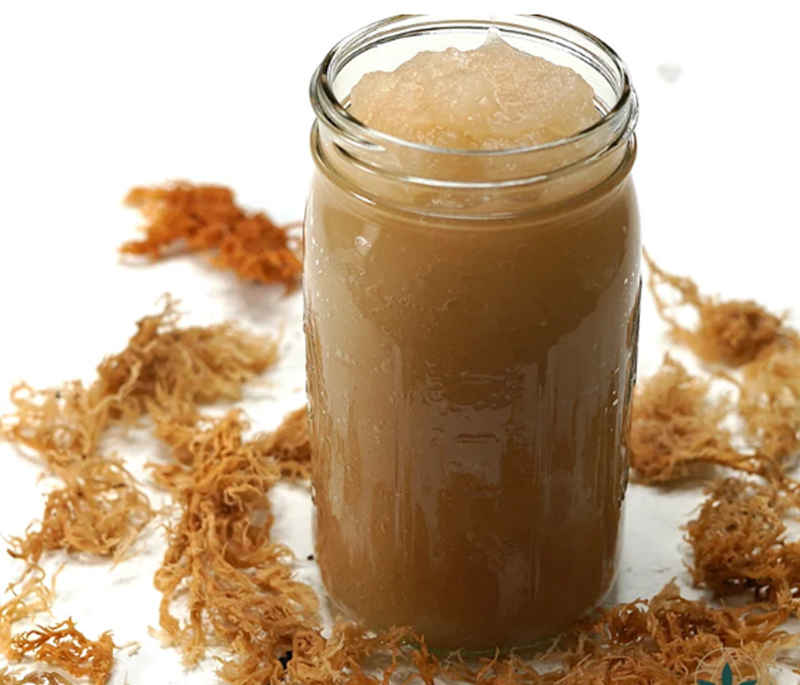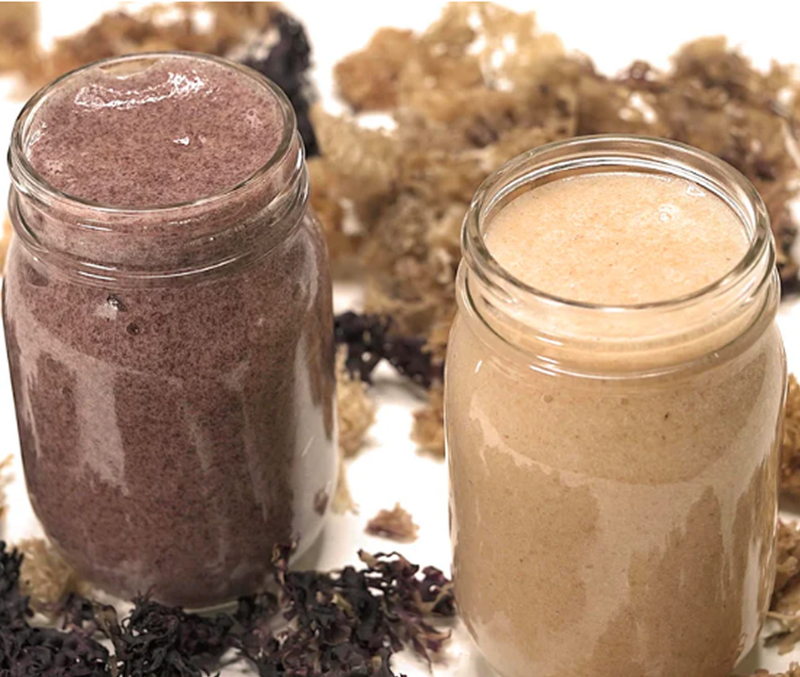

Sometimes, it only takes a hint of bloating and gut pain to turn a promising day into an uncomfortable situation. Is there an easy solution? Sea moss has been gaining attention as a natural option for digestive support, and many people are curious if this ocean treasure might be the answer to their troubled tummies.
In this guide, we'll explore how sea moss might help with bloating and gut discomfort, what science says about it, and practical ways to try it safely. Whether you're new to natural remedies or a seasoned wellness enthusiast, you'll find straightforward information to help you decide if sea moss is worth adding to your gut health toolkit.
What Are Bloating and Gut Pain
That tight, full feeling in your belly after eating? That's bloating. Sometimes it comes with pain, gas, or a visibly swollen stomach that makes your pants feel two sizes too small.
Bloating happens for many reasons:
- Eating too quickly: When you rush through meals, you swallow excess air and don't give your digestive enzymes time to properly break down food, leading to gas buildup and bloating.
- Food sensitivities: Common triggers like lactose, gluten, FODMAPs, and artificial sweeteners can cause fermentation in the gut, producing gas and inflammation that lead to bloating.
- Digestive issues: Conditions such as IBS (Irritable Bowel Syndrome), SIBO (Small Intestinal Bacterial Overgrowth), and gastroparesis can disrupt normal digestion and cause chronic bloating.
- Stress and anxiety: Your gut and brain are closely connected through the gut-brain axis. When you're stressed, your digestive system can slow down or speed up, affecting how food moves through your system and potentially causing bloating.
- Hormonal changes: Many women experience bloating before or during their menstrual cycle due to water retention and changes in gut motility caused by fluctuating hormones.
- Gut bacteria imbalances: An overgrowth of certain bacteria or yeast in your digestive tract can produce excess gas during fermentation, leading to bloating and discomfort.
- Poor eating habits: Consuming carbonated beverages, chewing gum, using straws, or eating large portions can all introduce extra air or put pressure on your digestive system.
- Low stomach acid: Insufficient stomach acid can lead to incomplete digestion of proteins, which then ferment in the gut and cause gas and bloating.
For some people, bloating is an occasional nuisance. For others, it's a daily struggle that affects their comfort, confidence, and quality of life. The search for relief leads many to try everything from medication to dietary changes, and increasingly, to natural options like sea moss.
How Does Sea Moss Help With Bloating?

Sea moss might be helpful to your gut against bloating for several key reasons:
It's Packed with Dietary Fiber
The fiber in sea moss may help move food through your digestive system more efficiently.* This may prevent the backup and fermentation of food that often leads to gas and bloating.* Think of it as a gentle push that keeps things flowing smoothly.
The specific type of fiber in sea moss may create bulk in your stool without causing irritation, helping to improve regularity.* Regular elimination prevents waste buildup that can lead to bacterial overgrowth and gas production. Additionally, this fiber binds to excess water in the intestines, which may help reduce the waterlogged feeling that contributes to bloating.*
It May Act As a Prebiotic
Sea moss contains compounds that may feed the good bacteria in your gut.* A balanced gut microbiome means better digestion and less gas production. When your gut bacteria are happy, your stomach often feels calmer too.
The prebiotic fibers in sea moss may nourish beneficial bacterial strains like Bifidobacteria and Lactobacillus, which may help break down food properly and crowd out gas-producing harmful bacteria.* These good bacteria may also produce short-chain fatty acids that nourish your colon cells and reduce inflammation, creating a healthier gut environment less prone to bloating.*
It May Form a Protective Coating
Sea moss may create a slippery substance that coats your digestive tract. This coating may soothe irritated tissues and create a barrier against irritants that might trigger inflammation and bloating.*
This mucilaginous coating works on the gut lining in a similar way to aloe vera on sunburned skin, soothing it gently.* It can be especially helpful for people whose bloating stems from food sensitivities or mild inflammatory responses. The gel coating may also help trap and eliminate toxins and pathogens that could otherwise cause digestive distress.*
It May Reduce Inflammation
Chronic inflammation in the gut can lead to bloating and discomfort. Sea moss contains compounds that may help alleviate this inflammation, potentially offering relief from related symptoms.*
The unique carrageenan and other polysaccharides in sea moss have been studied for their anti-inflammatory properties. By reducing inflammation, sea moss may help normalize gut function, reduce hypersensitivity to normal digestive processes, and decrease the pain associated with bloating.* Its antioxidants also help neutralize free radicals that can damage gut tissues and trigger inflammatory responses.*
It May Support Regular Bowel Movements
Constipation often goes hand-in-hand with bloating. The fiber and natural laxative properties of sea moss may promote regularity, which helps prevent the buildup of gas and waste that contributes to that uncomfortable bloated feeling.*
Sea moss may provide gentle support for peristalsis, the wave-like muscle contractions that move food through your digestive tract.* By supporting these natural movements without causing dependency, sea moss may help maintain healthy transit time for food.* This balanced approach may help prevent both constipation and diarrhea, two common conditions that can lead to bloating.*
It May Provide Digestive Enzymes
Sea moss contains natural enzymes that may help break down food more efficiently, reducing the undigested particles that may ferment in your gut and cause gas.*
These enzymes complement your body's own digestive enzymes, potentially improving the breakdown of complex carbohydrates, proteins, and fats. Better digestion means less fermentation in the gut and, consequently, less gas production and bloating.
It May Support Thyroid Function
The iodine in sea moss may support proper thyroid function, which plays a crucial role in metabolism and digestive health.*
An underactive thyroid may slow digestion and lead to constipation and bloating. By providing natural iodine, sea moss may help maintain optimal thyroid function, keeping your digestive system moving at a healthy pace.* This is especially relevant for people whose bloating is connected to sluggish metabolism or hypothyroid conditions.
Potential Side Effects of Sea Moss
Sea moss offers many potential benefits, but it's not perfect for everyone. Being aware of possible seide effects helps you make an informed choice:
Initial Digestive Adjustment
Some people experience temporary bloating or gas when first adding sea moss to their diet, ironically, the very symptoms they're trying to address. This usually subsides as your body adjusts.
This adjustment period is similar to what happens when you suddenly increase fiber intake from any source. Your gut bacteria need time to adapt to these new compounds. To minimize this effect, start with very small amounts and gradually increase over several weeks.
Iodine Sensitivity
Sea moss naturally contains iodine, which most people need for thyroid health.* However, too much iodine can cause problems for those with certain thyroid conditions. If you have thyroid issues, talk to your doctor before using sea moss.
People with Hashimoto's thyroiditis, Graves' disease, or other autoimmune thyroid conditions should be particularly cautious. Signs of iodine excess might include throat irritation, acne-like skin lesions, stomach pain, or changes in heart rate.
Allergic Reactions
Though rare, some people may be allergic to sea moss or other seaweeds. Start with a small amount to test your tolerance.
Allergic reactions might manifest as itching, hives, swelling, difficulty breathing, or digestive distress. People with known allergies to other sea vegetables or shellfish should be especially careful when trying sea moss for the first time.
Medication Interactions
Sea moss might interact with blood thinners, thyroid medications, or other drugs. Always check with your healthcare provider if you're on medication.
The iodine in sea moss could potentially interfere with thyroid medications like levothyroxine. Its natural anticoagulant properties might enhance the effects of blood thinners like warfarin. Additionally, the high potassium content could interact with certain blood pressure medications or diuretics.
Quality Concerns
Low-quality or contaminated sea moss products may contain high levels of heavy metals or other pollutants. This is why testing for heavy metals and choosing a reputable source like Alkaline Herb Shop is crucial. Our premium quality Chondrus crispus sea moss undergoes rigorous testing for identity, microbes, and heavy metals to ensure safety.
Digestive Sensitivity
People with certain digestive conditions like irritable bowel syndrome (IBS) might be sensitive to the carrageenan in sea moss, which could potentially trigger symptoms in some individuals.
While food-grade carrageenan in whole sea moss differs from degraded carrageenan (which has been associated with inflammation in some studies), individuals with extremely sensitive digestive systems might still react to it. Monitoring your body's response is important.
Pregnancy and Breastfeeding Considerations
Research is limited, but the current consensus is that pregnant or breastfeeding women should consult healthcare providers before using sea moss supplements.
How to Use Sea Moss for Bloating
Ready to try sea moss for your digestive woes? Here's how to get started:
Choose the Right Form
Sea moss supplements come in several forms, each with its own advantages:
-
Raw sea moss: Requires preparation but gives you the most control over quality. You'll need to clean it, soak it, and blend it into a gel before use. This form allows you to see exactly what you're consuming and customize the consistency.
-
Sea moss capsules: Convenient for travel and consistent dosing. These are ideal if you dislike the texture of sea moss, or if you need a portable option for busy days. Capsules also provide precise dosing.
Start Small and Build Gradually
Begin with a small amount, about 1 tablespoon of sea moss gel or 1-2 capsules daily, and gradually increase to the recommended serving. This gives your body time to adjust and helps you identify any sensitivities.
Be Consistent
Natural remedies often work best with regular use. Try taking sea moss daily for at least 2-3 weeks to evaluate its effects on your bloating.
Creating a routine helps ensure consistency, perhaps taking it with breakfast each morning or as part of an evening regimen. Setting reminders on your phone can help during the initial habit-forming period.
Time to Get Rid of Bloating
Sea moss may offer potential benefits for those struggling with bloating and gut discomfort.* Its combination of fiber, prebiotics, and soothing properties addresses several common causes of digestive distress.*
While it's not a miracle cure, many people find that adding high-quality sea moss to their wellness routine may help ease bloating and improves overall digestive comfort. The key is starting slowly, choosing quality products, and giving your body time to respond.
Remember that gut health is personal: what works for one person may not work for another. Listen to your body and consider consulting with a healthcare provider, especially if you have existing health conditions or take medications.
With the right approach, sea moss might just become a valuable tool in your quest for a happier, calmer gut.*
FAQs
Does sea moss help with bloating?
Yes, sea moss may help with bloating.* Its high fiber content may support regular digestion and help reduce gas buildup. Also, its prebiotic compounds may nourish healthy gut bacteria that aid digestion.* Sea moss may also form a soothing coating along the digestive tract, which may ease irritation and inflammation that contribute to bloating.*
How long does it take for sea moss to help with bloating?
Some people notice improvements within a few days, while others may need 2-3 weeks of consistent use. Your results will depend on the cause of your bloating and your individual body chemistry.
For chronic bloating issues, give sea moss at least a month of daily use before evaluating its effectiveness.
Can I take sea moss every day for bloating?
Yes, most people can safely take sea moss daily. Start with a small amount and work up to the recommended serving on the product label. If you have thyroid issues or take medications, check with your healthcare provider first.
Is sea moss better than probiotics for bloating?
They work differently. Sea moss acts as a prebiotic (food for good bacteria) and provides fiber and soothing compounds.* Probiotics add beneficial bacteria directly. Many people find using both provides complementary benefits for gut health.
Think of it this way: probiotics are like adding new plants to your garden, while sea moss is the fertilizer that may help them grow.* The combination may create a more balanced gut environment than either approach alone.*
Can sea moss make bloating worse initially?
Yes, some people experience temporary increased gas or bloating when first adding sea moss to their diet. This usually resolves as your digestive system adjusts. Starting with a small amount can minimize this effect.
Which form of sea moss is best for bloating: gel or capsules?
All forms may help with bloating. Gel allows for flexible dosing and easy addition to foods and drinks. Capsules offer convenience and consistent dosing.
Some people find that different forms work better for different situations, perhaps capsules for travel and work days, and gel for home use.
Can I use sea moss alongside other digestive supplements?
In most cases, yes. Sea moss may complement other natural digestive aids like ginger.* However, if you're taking prescription medications or have health conditions, consult your healthcare provider about potential interactions.
When combining supplements, introduce them one at a time so you can identify which ones help and which might cause issues.





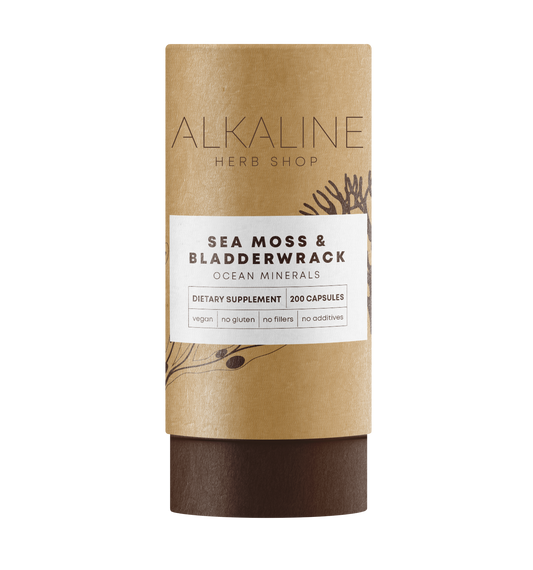
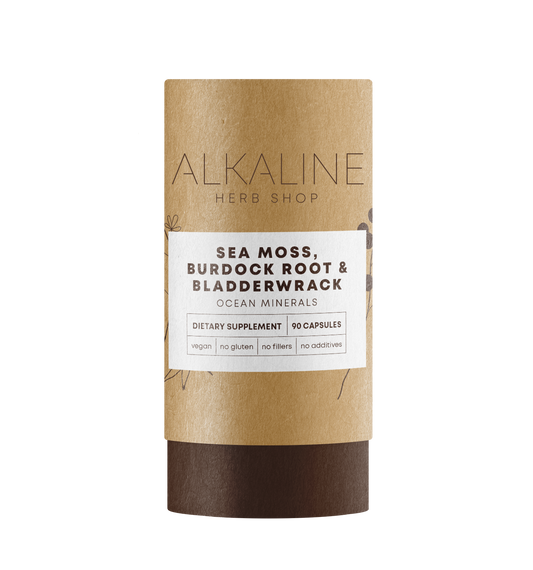
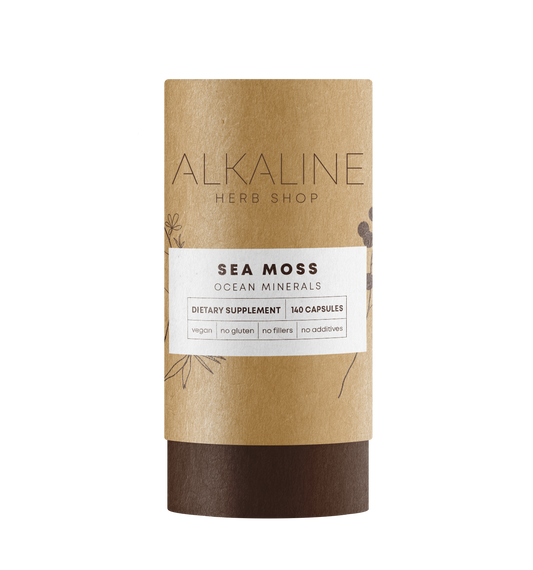
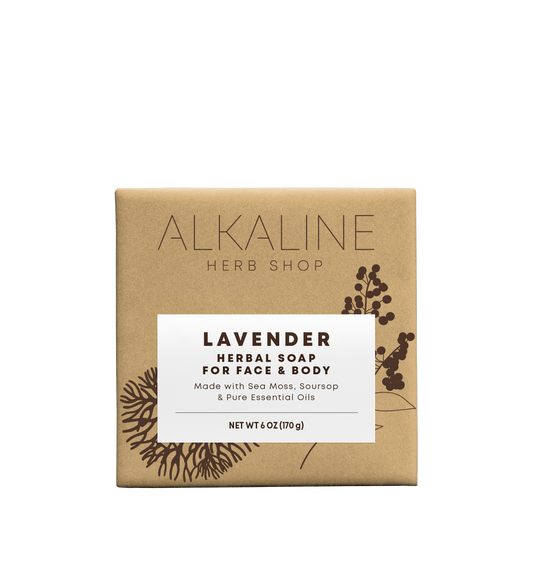
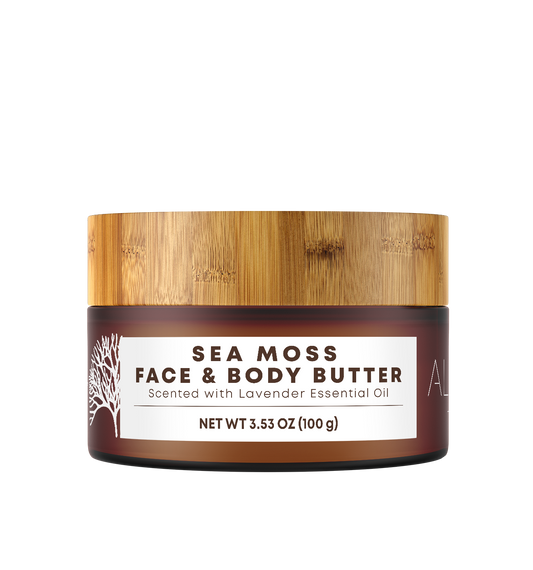
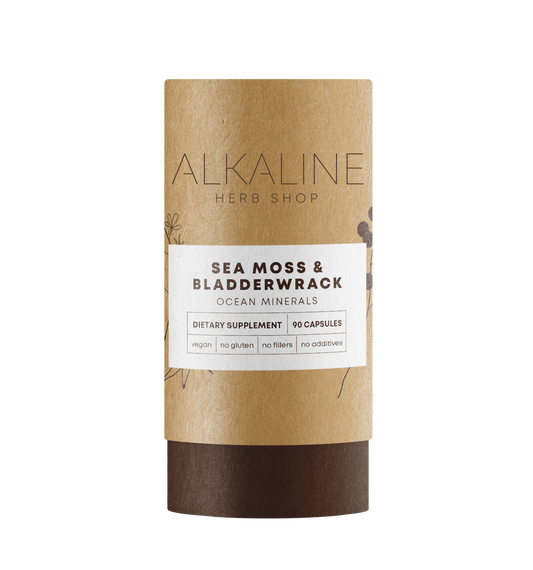
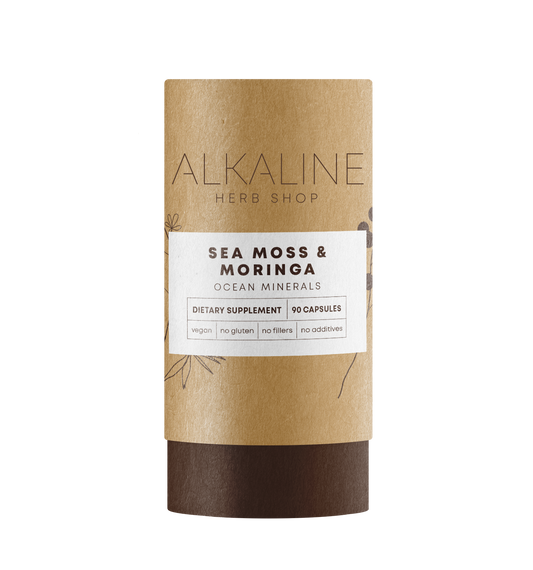
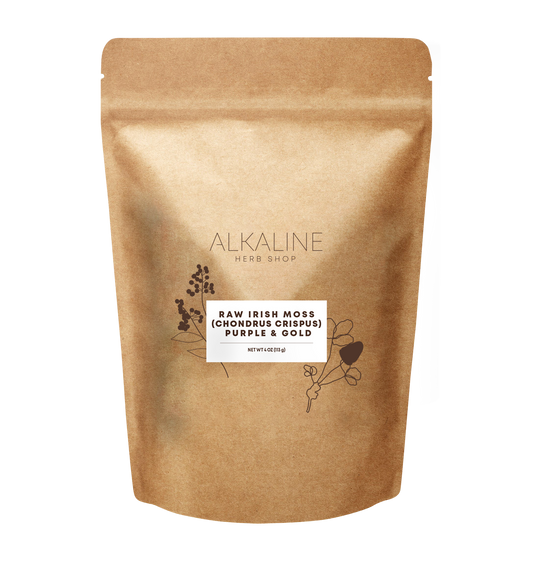
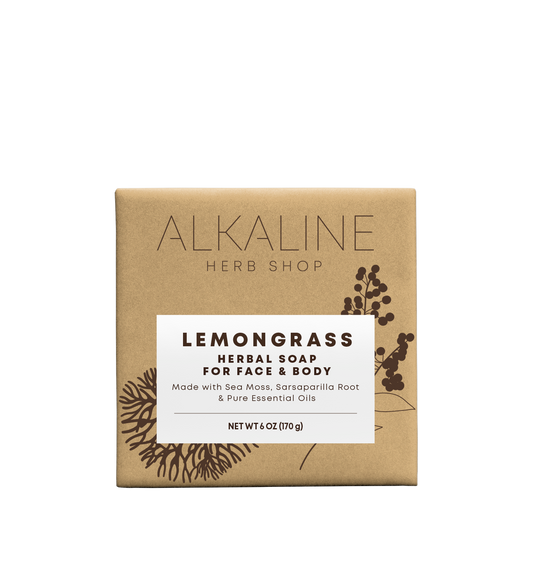
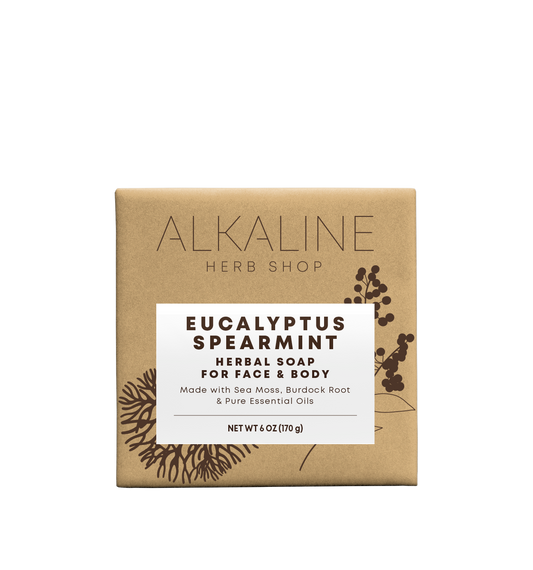
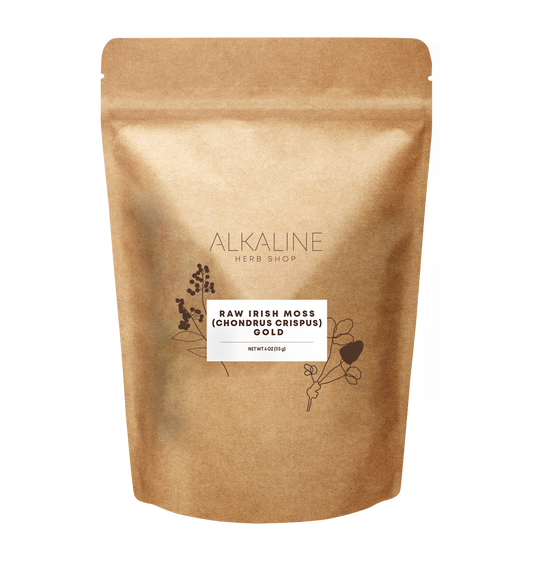
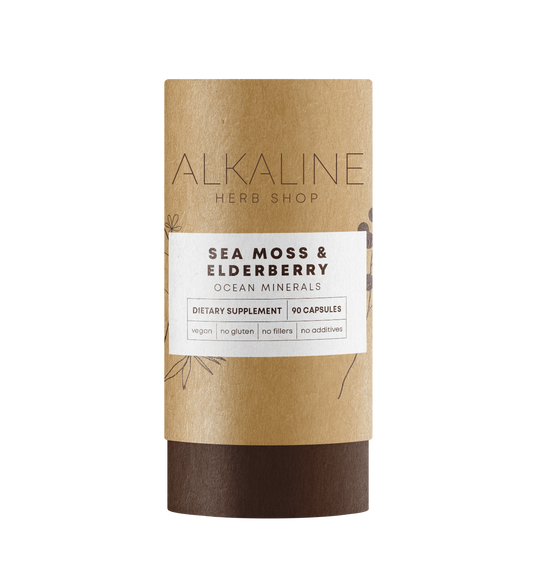
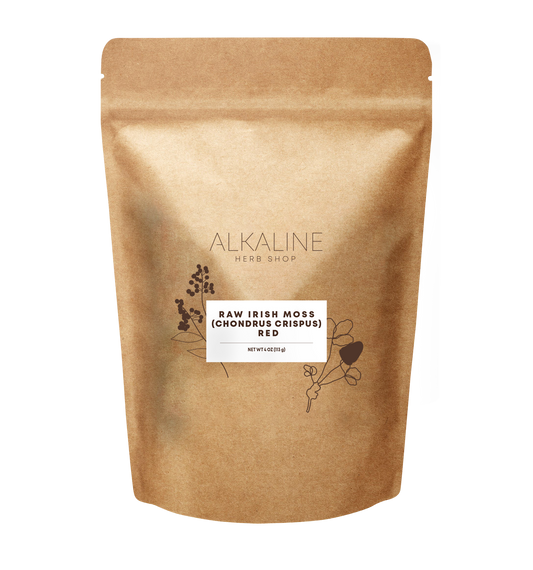
.png?v=14052428765372906161761701960) Previous Post
Previous Post
%20copy.png?v=62173825240595680121761701960)

